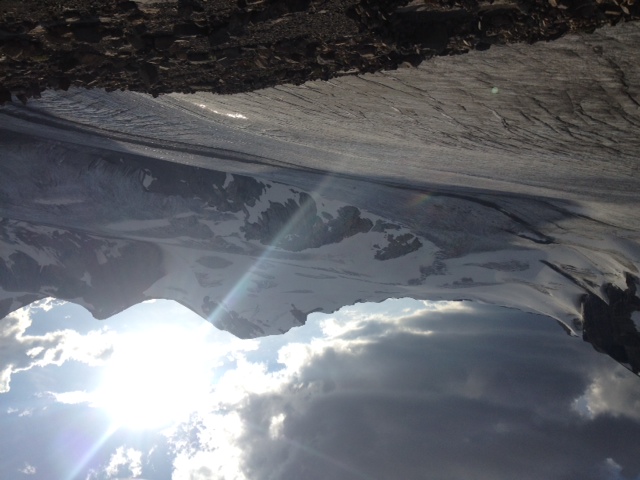Hi Team,
I am just arriving back from a private Crossfit Intro to Mountaineering at the
Bow and Peyto huts for Yamnuska.com. During this trip we summited Rhondda,
Habel, Baker, Trapper and Peyto peaks and observed the following conditions:
Peyto to Bow
Yesterday we were able to travel on dry glacier from Peyto to the Thompson
shoulder. The high glacier traverse to the Onion shoulder has less than 60cm
and more often less than 30cm of snow.
Peyto Glacier
The fern (snow) line is between 2400-2600m depending on aspect. Snow depth is
generally less than 60cm but boot pen was consistently less than ankle even in
the afternoon.
Rhondda
It is possible to ascend the S ridge on snow or rock. Once on the ridge it is
possible to avoid all snow/glacier to the summit. We descended midway along the
E face on good bridges avoiding the open seracs.
Habel
The snow/ice arête to gain the Habel/Baker col has less than 10cms of snow at
it's narrowest point. The north face talus slope and ridge to the summit are
snow free. We descended the S face early afternoon on good snow and supportive
bridges.
Baker
The SE face has great neve up to 50 degrees. In spite of above freezing
nighttime temps, we experienced a supportive crust that began breaking down
shortly after 7am. Most of the cornices are gone on the N ridge. The scramble
down involves some rock and ice.
Trapper
The E face has supportive snow up to 35 degrees. At noon we were able to walk
down the face in supportive steps.
Peyto
There is still snow in a gully that leads to the col W of the peak. We crossed
open talus slopes below the S face to the small summit tower.
Thanks to Dave and crew for a fun week of mountaineering.
Brent Peters
Alpine Guide
PeakStratagem.com

Mt Baker from Peyto Hut
Sent from my iPhone _______________________________________________
These observations and opinions are those of the person who submitted them. The
ACMG and its members take no responsibility for errors, omissions, or lapses in
continuity. Conditions differ greatly over time and space due to the variable
nature of mountain weather and terrain. Application of this information
provides no guarantee of increased safety. Do not use the Mountain Conditions
Report as the sole factor in planning trips or making decisions in the field.
See http://acmg.ca/mcr for more information.
See http://informalex.org/subscribe.shtml#unsubscribe to remove your name from
this list.
| 